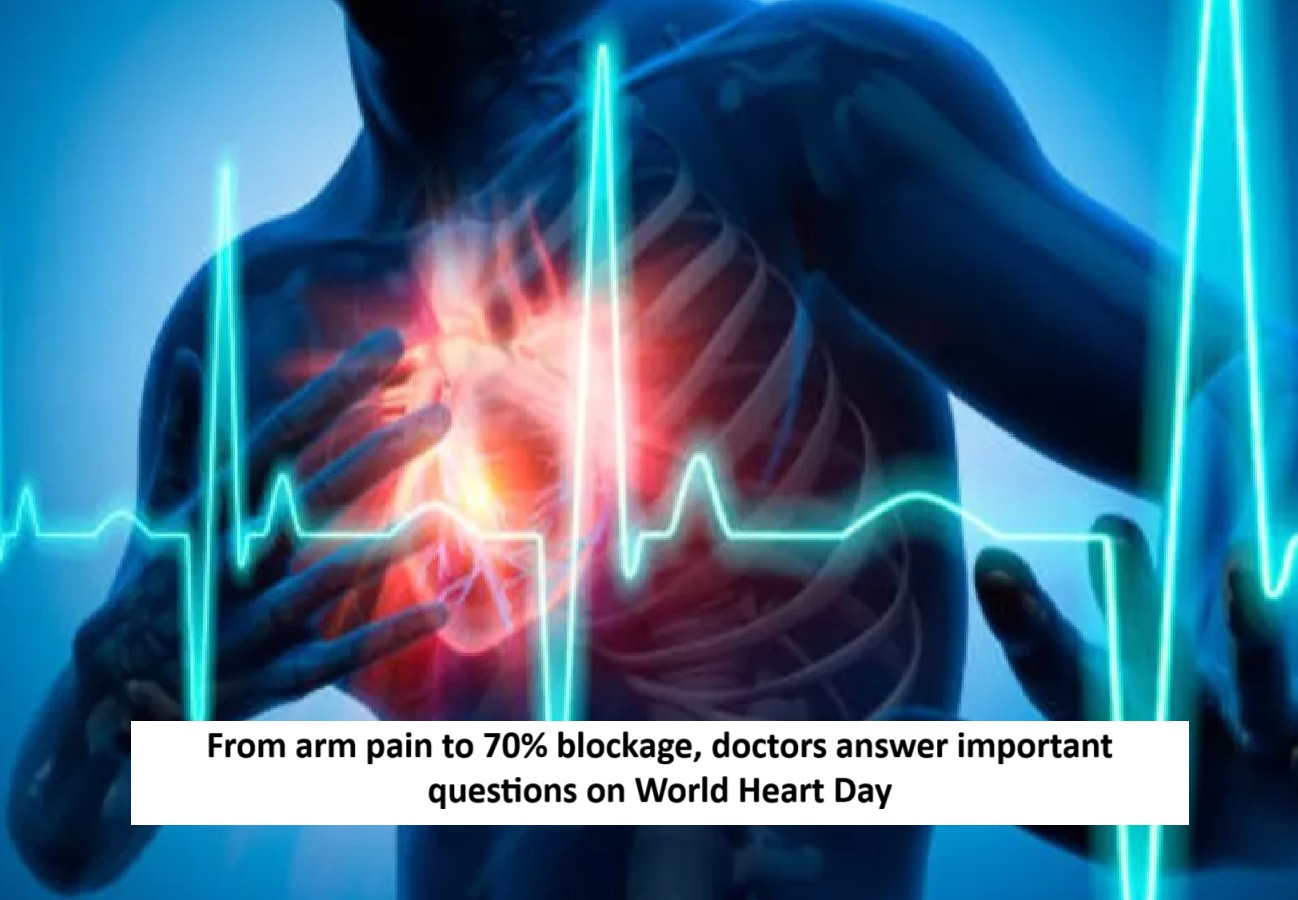
News Topical, Digital Desk : Amidst a busy schedule, unhealthy eating habits, stress, and increasing busyness, it's crucial to take special care of your health and heart. If anyone experiences any symptoms of heart disease, they should immediately consult a doctor and receive complete treatment. Doctors say that the first 60 minutes of a heart attack are the most crucial. Therefore, during this time, patients should reach the hospital as soon as possible to save their lives.
On the occasion of World Heart Day 2025 being celebrated on 29th September, let us know about some questions related to heart health from Dr. Ajay Kaul, Chairman of Cardiac Sciences, Fortis Hospital, Noida-62 and Dr. Sanjeev Gera, Senior Director of Cardiology Department.
Question: I am 76 years old. I have a heart patient. I have a pacemaker. Please advise me on the appropriate treatment.
Answer: Control your diet and eat only easily digestible and nutritious food. Get regular tests like Echocardiography and other important tests done. Maintain a balance in calcium, protein, and cholesterol . Don't let these levels rise. Be sure to get a CRPC (C-reactive protein) test. If the problem persists, consult a doctor.
Question: I am 82 years old. I have had two bypass surgeries and angioplasty. What precautions should I take?
Answer: Stay in touch with your doctor. Follow his advice and take your medications regularly. If desired, you can undergo CT angiography. You also need to protect yourself from progressive heart disease. In such a situation, caution is the only protection. Additionally, take special care of your diet and daily routine.
Question: I have trouble breathing. I get tired easily. What should I do?
Answer: First of all, if you smoke or consume tobacco, quit completely. Avoiding alcohol is also important. Additionally, you should also get an echocardiogram (ECHO) and a TMT (Treadmill Stress Test). You should definitely consult a doctor after getting these tests done.
Question: I am 58 years old. My blood pressure is often high. Could this cause heart problems?
Answer: Persistently high blood pressure is harmful to the heart, kidneys, and other internal organs. Don't take it lightly. See a doctor as soon as possible and get your Echocardiogram and TMT tests done.
Question: I am 64 years old. My heart has been diagnosed with a 70 percent blockage. Will I need a ring?
Answer: If you experience symptoms like chest or left arm pain, fatigue, excessive sweating, and even a blockage, you should consult a doctor. Medication is likely to resolve the condition. However, if you don't experience relief after some time, you should definitely get a stent. Regularly monitor your blood pressure and sugar levels. Only after an angiography can you make better recommendations.
Question: I'm 62 years old. I had open-heart surgery. I still experience chest tightness. What should I do?
Answer: You may experience stress, depression, or a loss of appetite. Keep your blood pressure and sugar levels under control. Get a stress echocardiogram (ECG) and blood and urine tests. Only after the tests can we give you appropriate advice. A medication change may resolve this problem. You can also get a CPK test.
Question: I am 50 years old. I have pain in my left side. Please give me appropriate advice?
Answer: After getting your Echo, TMT, BP, and sugar checked, visit your doctor. Keep your cholesterol under control. Drink plenty of water and take a walk every day. Eat only easily digestible foods. Include whole grains and pulses in your diet. Practice yoga and exercise regularly. Take a walk every day and keep your body active.
Question: I'm 48 years old. My heart rate is irregular. Is this a sign of some risk factor?
Answer: You should see a doctor immediately and get an echocardiogram (ECG). Avoid foods that increase cholesterol. You should also get an ECG and a blood vessel (VaaB) test. Cycle regularly or take a brisk walk. Also, practice yoga and exercise. Avoid fried foods.
Question: I sweat a lot. I also have body aches. Is my heart starting to hurt?
Answer: Pain in the chest, back, and arms should be taken seriously. These could be signs of heart disease. If you're experiencing difficulty walking, consult a doctor. Sometimes, these problems are neurological. Therefore, only after an examination can we diagnose the cause.
--Advertisement--

 Share
Share



